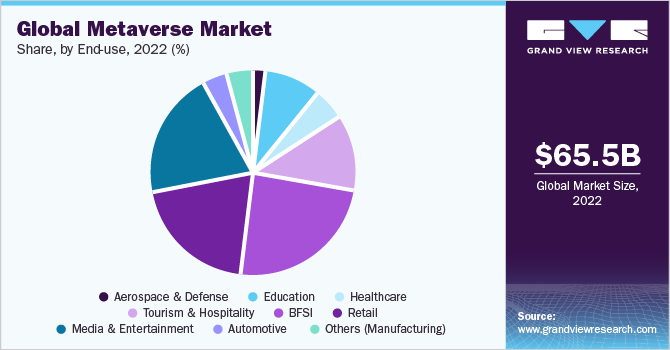Will Big Tech Divide the Metaverse?
The metaverse industry has rapidly become one of the fastest-growing sectors, currently valued at $68 billion and projected to reach $2 to 3 trillion by 2032. This explosive growth has attracted significant investments from major companies like Meta, Microsoft, Google, and Sony. Let’s explore each of these key players, their current strategies, and what these moves mean for the future of the metaverse.
Meta's Strategy
Meta’s current strategy focuses heavily on the metaverse through AI investments, as AI drives interactive NPCs, personalized user experiences, and dynamic content generation, exemplified in projects like Meta’s Horizon Worlds, where AI prompts create virtual environments. However, the broad focus of Meta risks making it a “Jack of all trades, master of none.”
Microsoft's Approach
In contrast, Microsoft’s approach with Microsoft Mesh maximizes existing products by integrating mixed reality into various sectors beyond gaming. Mesh emphasizes collaboration and productivity through immersive experiences, aiming to attract businesses and organizations to use the product.
Google's Focus

Google’s strategy focuses on VR and AR technologies, which is highlighted by its partnership with Magic Leap. This collaboration aims to advance mixed reality experiences, leveraging Google’s expertise in search algorithms, cloud services, and mobile operating systems to create robust AR and VR solutions.
Sony's Initiatives
Lastly, Sony aims to penetrate the metaverse through mainly gaming, integrating blockchain and NFTs with initiatives like ‘Super-Fungible Tokens’ (SFTs). With advancements in VR hardware, Sony seeks to enhance gaming experiences and explore digital ownership via blockchain.
Challenges and Concerns
What do these strategies mean for the Metaverse? The first concern is user privacy. While these strategies might seem harmless, they enable extensive data collection. These practices enhance user experiences and platform functionality, but they raise significant privacy, security, and regulatory concerns in the evolving metaverse.
Fragmentation in the Metaverse
It’s reasonable to expect the metaverse to be fragmented rather than unified under tech giants like Meta, Microsoft, Google, and Sony. Each company is pursuing distinct strategies, technologies, and platforms, leading to fragmentation. Despite some interoperability efforts, these companies will likely maintain proprietary ecosystems, resulting in competing standards and interoperability challenges for users and developers.

This could create echo chambers, confining users within single platforms and limiting exposure to diverse perspectives and innovations. This isolation can stifle innovation by reducing collaborative opportunities and cross-pollination of ideas across ecosystems.
Conclusion
These strategies mark a crucial juncture in digital interaction’s evolution as tech giants vie for dominance in the metaverse landscape. While Meta, Microsoft, Google, and Sony bring diverse strengths and visions to this emerging field, the path ahead remains uncertain. Balancing innovation with the risks posed by fragmented platforms and proprietary technologies is essential. Ultimately, the fate of the metaverse hinges on whether it evolves into an inclusive, interconnected space or remains fragmented by the ambitions of its most influential players.




















